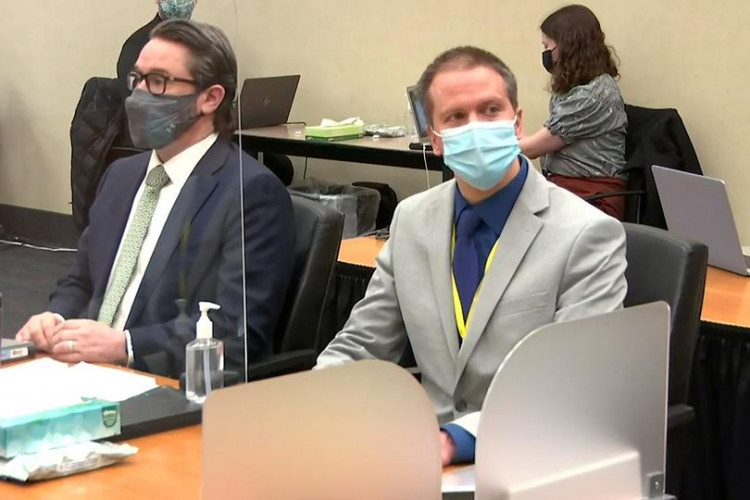Derek Chauvin, the former Minneapolis police officer who kneeled on George Floyd's neck, pled guilty to federal charges on Wednesday. Chauvin pled guilty to violating Floyd's civil rights and admitted for the first time that he continued to keep his knee on his neck even after he knew that he was already unresponsive.
In his federal plea, Chauvin pled guilty to depriving Floyd of his rights by using "unreasonable force" to detain him. Chauvin said he kept his knee on Floyd's neck even though he was already in handcuffs and was not resisting.
Chauvin had already been convicted of state murder and manslaughter and was sentenced to 22 and a half years in prison. On the federal charge, Chauvin could have faced life in prison, which might have been an incentive for him to avoid going to trial.
Both parties agreed that Chauvin should get a sentence ranging from 20 to 25 years under the plea bargain, with prosecutors stating that they will seek the highest possible punishment. The final punishment will be decided by U.S. District Judge Paul Magnuson.
Chauvin's state sentence would have been 15 years in prison before he was eligible for release if he maintained good conduct. If Chauvin is sentenced to the full 25 years sought by prosecutors, he would likely serve 21 years and three months in jail, or about six years more than his current state term.
Along with Chauvin, three other former police officers, Thomas Lane, J. Kueng, and Tou Thao, were also charged on federal charges.
According to testimony in Chauvin's state case, Kueng and Lane assisted him in retraining Floyd while he was on the ground. Kueng reportedly knelt on Floyd's back, and Lane kept Floyd's legs down. During the nine-minute detention, Thao kept onlookers at bay and prevented them from intervening.
In federal court, all four former cops were accused of depriving Floyd of his rights. The other three former cops are scheduled to go on trial in January on federal charges and in March on state charges of aiding and abetting.
Chauvin also admitted to infringing on the rights of a 14-year-old child during a 2017 arrest in which he grabbed the kid's throat, hit him in the head with a flashlight, and placed his knee on the boy's neck and upper back while he was prone, handcuffed, and not struggling.
That was one of the numerous examples referenced in state court records in which prosecutors claimed Chauvin utilized neck, head, and upper body restraints seven times between 2014 and 2016, including four times when prosecutors claimed he went beyond the threshold where force was required.




